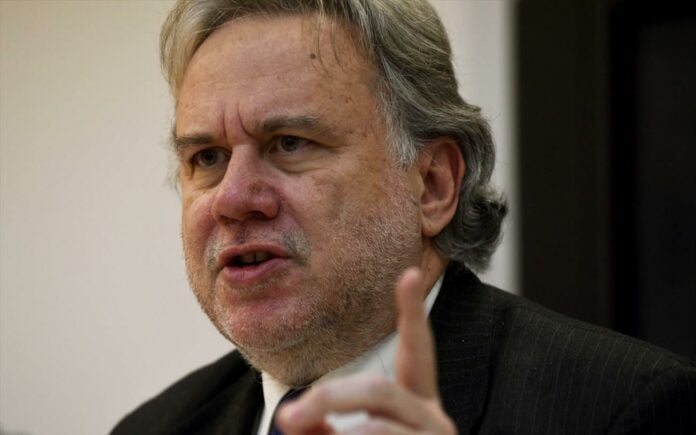Greek Foreign Minister Giorgos Katrougalos expressed a more conciliatory tone this week regarding energy deposits in the eastern Mediterranean, a day before he travels to neighboring Turkey, with the Anadolu news agency quoting him from Athens as saying Greece “positively viewed Turkey’s participation in energy-related matter” in the specific region.
Official Athens, the republic of Cyprus, Israel as well as other international players have rebuked Ankara over the recent period over the Turkish political establishment and military’s saber-rattling in the eastern Mediterranean – mainly aimed to block hydrocarbon exploitation and exploration in the island republic’s Exclusive Economic Zone.
Katrougalos’ statement comes before his meeting in Antalya with his Turkish counterpart, Mevlut Cavusoglu and also coincides with Greek Prime Minister Alexis Tsipras’ meetings in Jerusalem with the Israeli and Cypriot leaders, all in the presence of US Secretary of State Mike Pompeo.
In a joint communique issued after the meeting by host Benjamin Netanyahu, Cyprus President Nicos Anastasiades, Tsipras and Pompeo, the four sides noted, among others:
“The leaders agreed to increase regional cooperation; to support energy independence and security; and to defend against external malign influences in the Eastern Mediterranean and the broader Middle East,” a quip also aimed at Turkey.
Back in Athens, however, Katrougalos said that “… how can anyone exclude Turkey from this region, when it has so many kilometers coastline on the Mediterranean. No one is claiming the opposite.”
Conversely, he reminded the Turkish news agency that EU member-state Republic of Cyprus has its own EEZ, but this does not mean “a monopoly in the eastern Mediterranean”. He also reminded that Cyprus’ has created a joint fund for both communities on the island republic.
Finally, he again underlined that based on international law Greece retains the right to extend its territorial waters to 12 nautical miles.














